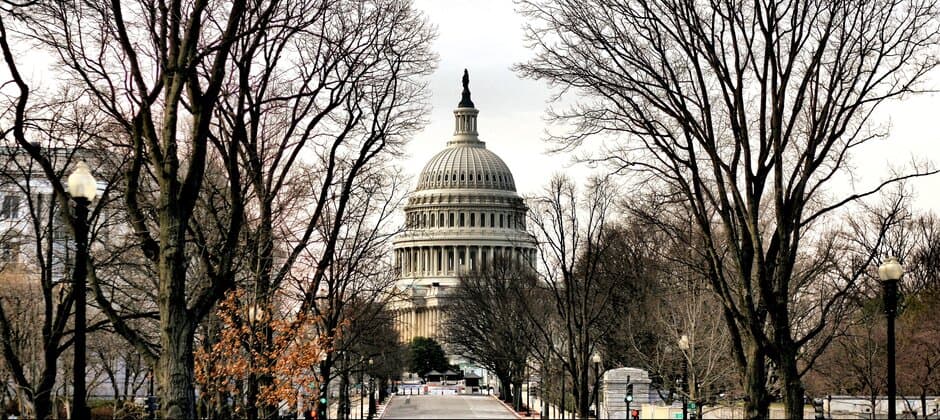Share this article
Senate considers Haaland for Secretary of the Interior
A recent U.S. Senate Energy and Natural Resources Committee confirmation hearing for Representative Deb Haaland, President Biden’s nominee for Secretary of the Interior, will help the Senate make a decision on whether she will be confirmed as the first Native American in the position.
Haaland, a Democrat from New Mexico, was a freshman in the House of Representatives during the 116th Congress and served as a member of the Committee on Natural Resources. She gained a reputation for promoting bipartisan conservation legislation, including the Great American Outdoors Act, the America’s Conservation Enhancement Act, and the John D. Dingell, Jr. Conservation Management and Recreation Act. In February, The Wildlife Society, alongside a coalition of hunting, angling, and conservation groups, submitted a letter supporting her nomination and confirmation by the Senate.
An enrolled member of the Pueblo of Laguna, Rep. Haaland is the first Native American nominated to lead the Department of the Interior, which oversees the Bureau of Indian Affairs, U.S. Fish and Wildlife Service, Bureau of Land Management, U.S. Geological Survey, and National Park Service.
Rep. Don Young, a Republican from Alaska, introduced Haaland at the confirmation hearing by praising her leadership in bipartisan collaboration. “She will listen to you” even when she disagrees, he said. Throughout the hearing, Haaland emphasized her commitment to working with Congress and the public to better understand various issues and develop solutions.
Haaland pledged to support legislation promoting wildlife and habitat conservation, including programs under the Land and Water Conservation Fund. She said she would ensure that implementation of the Great American Outdoors Act is consistent with Congress’s intent and she would support infrastructure updates under the act. Haaland expressed the need to improve National Environmental Policy Act comment periods so that they are more accessible to the public, and she encouraged states to lead conservation initiatives through the use of Pittman-Robertson Act funds.
Discussion of the Endangered Species Act focused on recovery criteria and listing decisions for species. Although Haaland expressed support for science-based implementation of recovery criteria, Sen. Daines (R-MT) pointed out that Haaland previously supported a bill to maintain permanent federal protections for grizzly bears (Ursus arctos horribilis) after recovery criteria had been achieved. Sen. Marshall (R-KS) emphasized the importance of voluntary conservation measures for endangered species. Senator Lankford (R-OK) asked if species should receive ESA protections due to anticipated future threats, such as temperature increases due to climate change, citing conservation efforts for the American burying beetle (Nicrophorus americanus). Haaland did not elaborate on these topics but offered to learn more about the issues.
Senators also voiced concerns and recommendations for public lands. In response to questions from Sen. Lee (R-UT), Haaland recognized the need for community support when designating National Monuments under the Antiquities Act, although the powers of the act fall exclusively to the president. Senator Cantwell (D-WA) recommended that Haaland consider expanding the “Payments in Lieu of Taxes” program to states with National Wildlife Refuges and seek ways to sequester carbon dioxide on federal lands other than new land acquisitions. Senator Daines voiced the need to promote access to hunting, angling, and shooting opportunities on public lands and advocated for the “30 by 30” initiative to include lands open to grazing and other multiple uses.
Multiple uses for public lands was a main focus of the hearing, especially in regard to fossil fuel extraction and infrastructure. Many Senators were unhappy with Haaland’s deference to President Biden’s energy agenda, noting that as a member of the Cabinet, she must be prepared to advise the president. Haaland has previously been a vocal opponent of pipelines and other traditional energy development, but was reluctant to claim those views in the sharply divided and partisan committee hearing. Instead, she emphasized the role of technology and innovation in creating clean energy jobs, restating her commitment to learn more information and include local communities in developing solutions to energy and job needs.
In a Senate divided evenly along party lines, Haaland’s confirmation will depend on a few swing votes. After the hearing, Energy and Natural Resources Chairman Joe Manchin (D-WV), who was previously undecided on Haaland, announced that he would back her, a decision that will likely result in her confirmation. The committee voted on March 4 to recommend Haaland to the Senate floor for confirmation. The date for the full Senate vote has not yet been scheduled.
A recording of the confirmation hearing is available on the Senate Committee on Energy and Natural Resources webpage.
Header Image: After the Energy and Natural Resources Committee held a two-day hearing, the U.S. Senate will vote on whether to confirm Rep. Deb Haaland as the new Secretary of the Interior. Credit: Sebastian Vital








